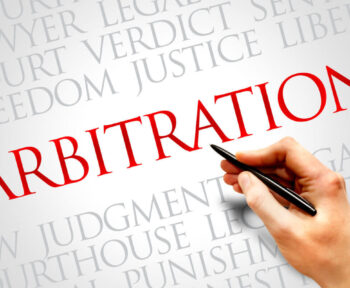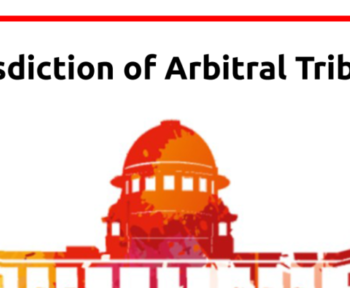“Mediation is a method of non-binding dispute resolution involving a neutral third-party who tries to help the disputing parties reach a neutrally agreeable solution.- Black Law Dictionary”
Mediation is not a new aged alternative dispute resolution method but a traditional method. This method has been used in India for ages and is one of the most common methods used to resolve disputes among two or more individuals. The concept of mediation goes back to the ancient Indian system, where the people of the civilization approached the elderly person of the community in case of disputes. The elderly person had to provide help and ensure that the parties reached a mutually consented settlement. The disputes were resolved mostly by way of negotiations. The Ruler/King intervened only if such a mechanism failed to settle the dispute. The Ruler/King would then settle down the dispute with the help of the municipal laws laid down by him. When we look at the later period of evolution, the dispute resolution was carried out by the Panchayat, a group of five wise men who would acknowledge the dispute and decide for them. There was no system of judicial courts as such.
It was during the time of Britishers that the judicial courts actually came into existence to ensure justice to the aggrieved one. It declared that the people can move to courts in case of any grievance or dispute. This made the courts loaded with work with limited resources. It resulted in delays in proceedings, pending cases and wastage of money and resources of the parties. The need for alternate dispute resolution seemed to be very much in need. It meant that the disputes will be resolved and settled outside the court. This will help the courts to lessen their burden and quick disposal of cases.
- Litigation in India:
The dictionary meaning of the term ‘litigation’ is the process, act, procedure to describe the settlement of disputes in a court of law. The judicial processes in India are based on the rule of law and to provide fruitful and effective remedies for adjudication of disputes. The judicial framework is based on substantive and procedural laws to be employed in civil, criminal and regulatory litigation by a well-defined hierarchy of Courts. Litigation involves all sorts of disputes whether civil or criminal, in other words, all cases/disputes can be adjudicated by way of litigation but only specific categories of cases/disputes can be referred for Alternative Dispute Resolution. Litigation is a time consuming, complicated and expensive way for resolution of disputes.
Courts in India generally strive to impart substantive justice and favor a liberal interpretation of procedural statutes. However, litigation interpretation before Indian Courts continues to be plagued by delays and the judicial system faces numerous challenges hampering the case disposal rate in the country, primarily owing to an acute shortage of Judges (when indexed to the population), and a huge backlog of pending cases.
- MEDIATION
- Mediation is one of the modes of the Alternate Dispute Resolution (hereafter referred as ADR). ADR means an alternate method of dispute settlement without involving courts. The ADR process involves dispute resolution by a neutral third party. In mediation, the parties approach a third party, who in any way is not involved in the dispute, to resolve the issue. Mediation is effectively a negotiation assisted by a neutral third party known as the mediator.
- Mediation does not bind the parties to implement the decision of the mediator. A mediator can help the parties in reaching the settlement but does not make his decision as final. The ADR proceedings are confidential in nature and thus, mediation is confidential. It can be chosen by the parties willingly or by the orders of the court or as per the contract.
- Mediation can be referred to in small cause cases like family disputes, real estate disputes, breach of contract, personal injury matters or small business disputes. It cannot be preferred in disputes arising out of transnational relations.
- Mediation has proven to be one of the most effective methods of resolving legal disputes outside the courtroom. In mediation, the parties meet with a neutral mediator, who is usually an attorney with special training in conflict resolution.
- When it comes to formal litigation systems, mediation along with other methods of ADR has been statutorily recognized by the Civil Procedure Code (Amendment) Act, 1999 which introduced Section 89 thereto. Section 89 of the Code of Civil Procedure, which gives the Court the power to refer the dispute for settlement or conciliation, was introduced with a purpose of an amicable, peaceful, and mutual settlement between parties without the intervention of the court. However, the issue is that even after more than a decade of its implementation, the provision provided for ADR under Section 89 suffers from many anomalies. The constitutional validity of this section was upheld but the frequency with which ADR is utilized for resolution of disputes remains minute, which arises due to lack of knowledge about the same or on account of the reluctance of the parties. The Law Commission in its 129th Report advocated the need for amicable settlement of disputes between parties and the Malimath Committee recommended making it mandatory for courts to refer disputes, after their issues having been framed by courts, for resolution through alternate means rather than litigation/trials.
- Effectiveness of Mediation
- Backlog pending cases: Mediation is one of the modes of alternate dispute resolution and there is a need for such alternate modes of resolution. The main reason has been the burden on the courts and the delay in proceedings. The pending cases in the courts have led to taking an alternate route to justice. The people often do not want to knock on the doors of courts because of the backlog of cases and delayed justice. The mediation offers that the matter will be disposed of in a session or two, which means no delayed justice.
- Benefits of the parties as well as the counsels: The mediation is beneficial to both the parties and the counsels. The mediation helps the parties to dispose of the matter with the best settlement protecting their interests. This means that the parties’ interests are protected by the mediation. The counsels are benefitted in terms of the experience they earn from the mediation process.
- Cost-effective: The court proceedings are generally expensive because of the delay in the process. The mediation proceeding is cost-effective. The mediation fees generally not expensive and also it gets over in a session or two, so it saves a lot of money for the parties.
- Value for Time: The mediation proceeding is also time effective. It saves a lot of time for the parties and the counsels. The proceeding does not take much time and also it is a convenient procedure. Therefore, such proceedings are needed in the judicial system now.
- Non-Binding Procedure: Mediation, unlike arbitration, is a non-binding procedure. The decision of the mediator is not final. The parties can opt-out of the proceeding at any point in time before signing the settlement agreement. Once, the settlement agreement is signed, the parties are bound by it.
- Confidential: The mediation is a confidential procedure. It mainly takes place at the office of the mediator or a place decided by the parties where only authorized people are present. It does not take place at a public place or in any open area where other people are present who are not related to the dispute. The information shared or admitted during the mediation proceeding cannot be revealed to anyone outside the proceeding. Such information cannot be revealed even in the subsequent litigation or arbitration as per the WIPO Mediation Rules.
- Interest-Based Procedure: The mediation proceeding is interest-based as it is the main motive of the settlement to protect the interests of the parties. The interest-based procedure of mediation encourages the parties to work together to reach a settlement that benefits both parties. Even if the parties are unable to reach a settlement, still mediation can be a productive part of the legal process. Attending a mediation proceeding can give valuable insights into the opposing party’s position and help to narrow down the issues that need to be addressed at trial.
- Flexible & Voluntary: The mediation procedure is flexible and voluntary as it does not bind the parties. The parties can leave the procedure at any stage before signing the settlement agreement. Also, mediation does not ruin anything, if the parties are not satisfied with the mediation, then they can always approach the court.
- Informal: Mediation is an informal mode of dispute resolution. It does not happen inside a courtroom. It generally takes place in some conference room or the mediator’s office.
Impartial Procedure: The mediation is an impartial procedure where an unbiased third person helps the disputants to reach a settlement that benefits both the parties. A mediator is a well-informed person who listens to both the parties and then suggests them to reach the best settlement.





